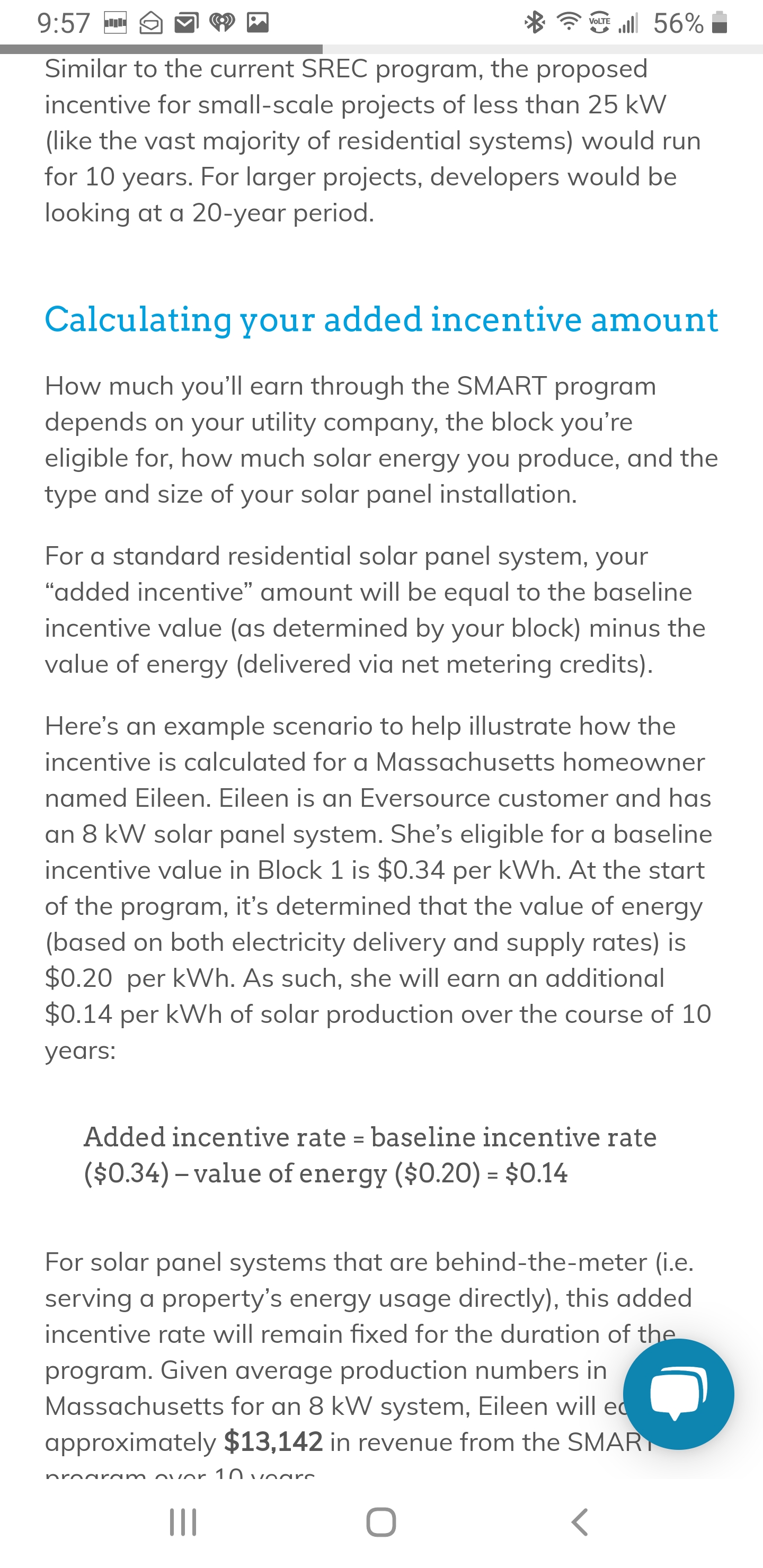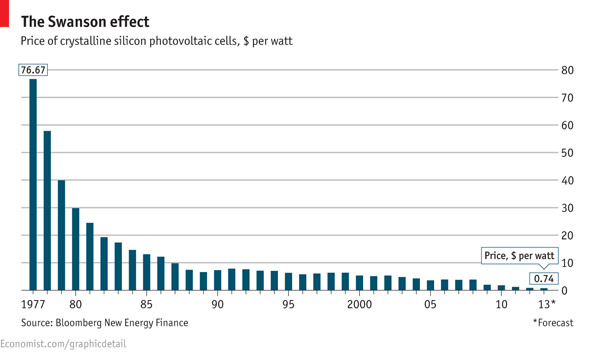I've been looking into solar for many years, but the benefits so far haven't been justifiable for me. I moved from WA state and I never could justify the cost versus return. When I looked into it pretty seriously (2-3 years ago), a system to offset only about half of our usage would have been been $30k-$40k. Western WA just doesn't really get enough solar insolation to make a lot of electricity. Now in NC, it is more attractive. One thing I've been noticing as I research solar in a general sense, the incentives have been diminishing quite a bit over time. They were attracting folks to get on the bandwagon and now they've started to max out the programs. As of 2019, the county where we lived has turned off the local incentives altogether. I just check locally in NC and Duke Energy has also met their capacity for new systems for 2020. Point is, the incentives make it attractive but without them, it makes less sense until prices come down or efficiencies go up.
I took a class in alternative energy in college (20+ years ago now) and I remember that PV efficiencies were 12-16%. Today, they are only about 18% on average, with the highest being about 23%. I think there is a point they can only be so efficient given solar to electrical conversion efficiency.
Without getting into being green and offsetting carbon footprint and all that, the value is just barely there these days, at least to me when all things are considered. For the OP, it sounds like it could be attractive given the higher than average electrical cost in his area. For areas where it's more "average" it just isn't all that attractive to me yet, but I want it to be as I find it to be a great technology.










![Craft A Brew - Safale S-04 Dry Yeast - Fermentis - English Ale Dry Yeast - For English and American Ales and Hard Apple Ciders - Ingredients for Home Brewing - Beer Making Supplies - [1 Pack]](https://m.media-amazon.com/images/I/41fVGNh6JfL._SL500_.jpg)


















































